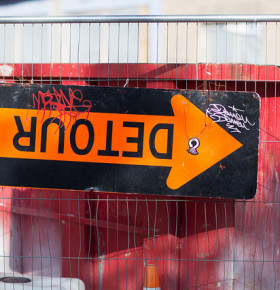
Contingency planning is important in experiential marketing data collection. Having some insurance in your process to prevent the unforeseen from stopping you from collecting data can make all the difference in your program.
I’ve previously discussed how to best equip ethnographers for data collection. I’ll use this opportunity to share a couple of the more interesting problems I’ve encountered, despite my best efforts. My objective is to emphasize exactly how important it is to have a backup in place.
1. Plan for backup methods of data collection
For one set of experiential marketing activations, we had ethnographers staffed with iPads at a number of festivals around the country. Everything seemed perfect. I shipped the iPads myself, so I knew they were fully charged, set up with the survey, and in perfect working order. To make sure nothing happened en route, I packed them in safety boxes, double padded with bubble wrap. So, what hindered my ethnographers’ ability to collect data? For the vast majority of them, nothing. Nearly all of the events went off without a hitch. Some events were canceled due to weather, but that was out of our control.
One ethnographer called me with a unique issue. His iPad kept freezing on him. Technically, it did the exact opposite: He was working in 100° weather. The iPad was overheating, preventing him from getting anything done in more than ten-minute bursts. It wasn’t hot enough to cancel the event, but the heat made data collection difficult. At the time, I had no backup plan in place, so the whole event ended up being an exercise in futility.
It taught me the valuable lesson of including a backup set of paper surveys with the iPads. It didn’t need to be many – just enough to get the ethnographer through the hottest part of the day. Those paper packets aren’t a big expense either. As most ethnographers have no use for them, they can ship them back to me with the iPads, and I can use them for another event.
2. Plan for backup ethnographers
Another fun issue I had was when one of my ethnographers got sick. Normally, this wouldn’t be a problem. We usually have a backup ethnographer in place for exactly this reason. It is a common safety measure we take when planning experiential marketing data collection. But this particular event was scheduled on short notice. We learned about it on a Monday and had to have it staffed for that Friday. So of course, no backup was available.
Well, someone had to do it, but he certainly did not want to. Nonetheless, I sucked it up and drove to the (luckily local) event, collected data, and went on my way. While this response is only possible on smaller, local projects, it’s a necessary part of a contingency plan. I wasn’t happy that I spent the better part of my day in a car or collecting data, but the client sure was happy the following week when I was able to deliver. And in the end, that’s what’s important. The work got done.
